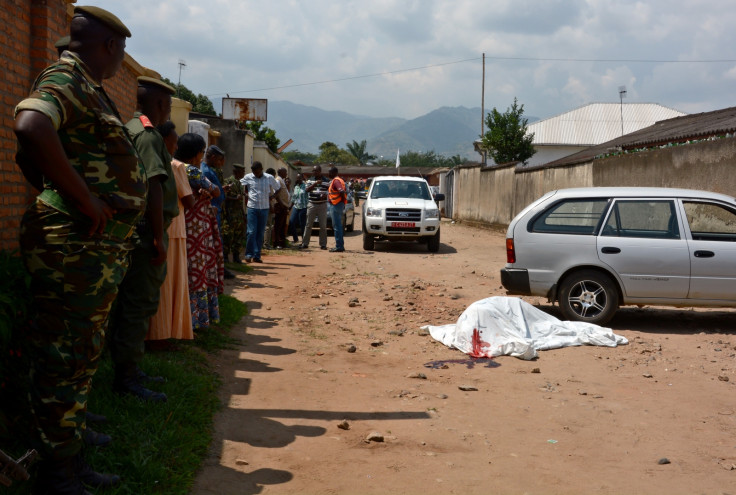Burundi victims' lawyers hand 55 new warrants to ICC to probe 'crimes against humanity'
Burundian families of victims of alleged extra-judicial executions and torture are appealing to the ICC.
A lawyer representing families of victims of killings and torture in Burundi has confirmed his team has been granted 55 new warrants - or 'referrals' - to bring cases to the International Criminal Court (ICC) to seek justice for the victims of Burundi's security crackdown.
In April, the Hague-based court launched a preliminary inquiry into alleged crimes committed in the country after 60 Burundian families of the victims of alleged extra-judicial executions officially mandated a group of lawyers to bring cases to the UN High Commissioner for Human Rights, as well as the ICC. Less than six months after the ICC said it was opening its examination, Burundi became the first state to ever withdraw from the jurisdiction of the court.
Bernard Maingain, one of the three lawyers representing the families of victims of alleged extra-judicial executions on 3 November confirmed lawyers acting for the defence and civil parties had handed an additional 55 warrants to the ICC prosecutor. Last month, Maingain told IBTimes UK his team had 110 warrants, and was expecting an additional 50 to 100 warrants.
"The number of civil parties is approximately 200 people. It's an inescapable group in the fight against impunity in Burundi. The [alleged] crimes they are denouncing are crimes against humanity, crimes of genocide and torture," Maingain said.
A preliminary examination is not an official investigation, but a process of examining the information available in order to decide whether there is a reasonable basis to proceed with a full investigation under the ICC founding Rome Statute. There are no timelines provided in the Rome Statute for a decision on a preliminary examination.

According to Burundi's civil society lawyer, civil parties were forced to resort to the ICC courts because of the absence of proper investigations and lack of independent and impartial judicial power in Burundi.
As exclusively reported in August by IBTimes UK, civil society lawyers are facing reprisals - including threats of disbarment - for having provided evidence to support torture in a report handed to the United Nations, and defending civil parties.
"The civil parties refuse to be silent and stop, even if they [the Burundi state] tries to disbar the Burundian defence lawyers," Maingain said.
The ICC receives and analyses so-called warrants, or referrals "to determine whether there is a reasonable basis to investigate, to conduct investigations into genocide, crimes against humanity and war crimes and to prosecute persons responsible for such crimes".
Given "the development of the case and its magnitude", the civil parties collective has endorsed a defence charter to protect the lawyers committed to the cause. Two lawyers - Lambert Nigarura and Alain Detheux - have joined the legal team.
Since the beginning of the crisis in April 2015, Human Rights Watch found that "hundreds of people have been viciously tortured, killed, raped or disappeared" in Burundi. Hundreds of people have been arbitrarily arrested, or detained on trumped-up charges.
© Copyright IBTimes 2025. All rights reserved.






















